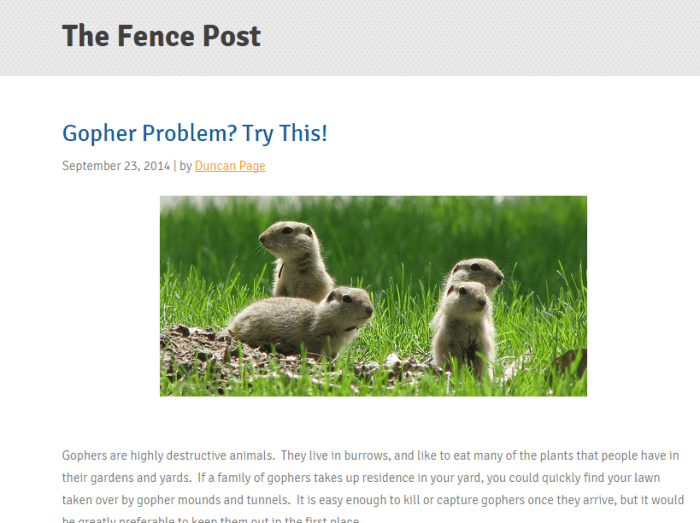Day 2 in our 5 days to Successful Content Marketing Series
 Yesterday I introduced our mini series by reviewing the key content marketing strategy questions. Today's advice is all about working out how your brand and business offering can extend into a content proposition. What kind of content can you credibly create, and how can this content support your business goals?
Yesterday I introduced our mini series by reviewing the key content marketing strategy questions. Today's advice is all about working out how your brand and business offering can extend into a content proposition. What kind of content can you credibly create, and how can this content support your business goals?
Think of a classic sales funnel, such as AIDA (Attention, Interest, Desire, Action). Your content marketing activity will typically be most valuable around the Attention and Interest top end, where search and social tend to be the key triggers of engagement.
So ask yourself: what kind of content can we create that the people we’re trying to reach might care about, or be prepared to offer a click or an email address for? For a quick answer to this, consider:
- What expert knowledge do we sit on? What do we know more about than anyone else?
- What kind of questions are people searching for that we can provide credible answers to?
Start by coming up with a few search terms related to your area of expertise. Google them and look at related searches in any of the free keyword planner tools. Look on forums and social sites where you might find the kind of people you want to reach. What are they talking about? What do they want to know about? Where could you step in and add value?
With a bit of thinking along these lines you can start to turn your business offering into a content proposition. All we need here is a simple content mission statement that turns what you do into what you can credibly talk about.
So a commercial bakery chain makes and distributes pastries, but its content proposition could be ‘everything you need to know about down-to-earth baking’. A stationery supplier to SMEs might go for ‘ways to improve the productivity and atmosphere of your office life’. A sports gear manufacturer might focus on ‘helping you achieve peak performance in your chosen sport’, while a virtual office specialist might choose ‘the changing workplace of the future’ as their content specialism. You get the idea.
The statement might include information about your target audience (eg small businesses), what you’ll be delivering content-wise (eg tips, advice, resources) and what the outcome is for your audience (eg a more productive, happier workplace). But keep it simple, get everyone to buy into it, and use it to filter ideas – if a content idea doesn’t sit well with the mission statement, it’s not the right idea for you.
Output: A simple one-line content mission statement that you can stick up on the wall for all to see.
Case study of how content marketing can support a brand: Louis E. Page
Louis E. Page is a family-owned fencing and mesh company that sells a variety of products, from garden fences to specialised material for zoos. It's Fence Post blog has a distinctive tone of voice and is focused on answering customer questions. Thanks to this, it has gained over 2000 leads from organic search, over a much wider and more diverse base, in a single year.

Read the full Hubspot case study here http://www.hubspot.com/customers/louis-e-page
Image/Copyright:@PA Images

Thanks to Dan Brotzel for sharing his thoughts and opinions in this blog post. Dan is the Content Director at
stickycontent, part of the Press Association. He is also Econsultancy's trainer in Content Marketing and Editorial Planning. You can connect with Dan on
LinkedIn or follow stickycontent on
Twitter




 Thanks to Dan Brotzel for sharing his thoughts and opinions in this blog post. Dan is the Content Director at
Thanks to Dan Brotzel for sharing his thoughts and opinions in this blog post. Dan is the Content Director at 

